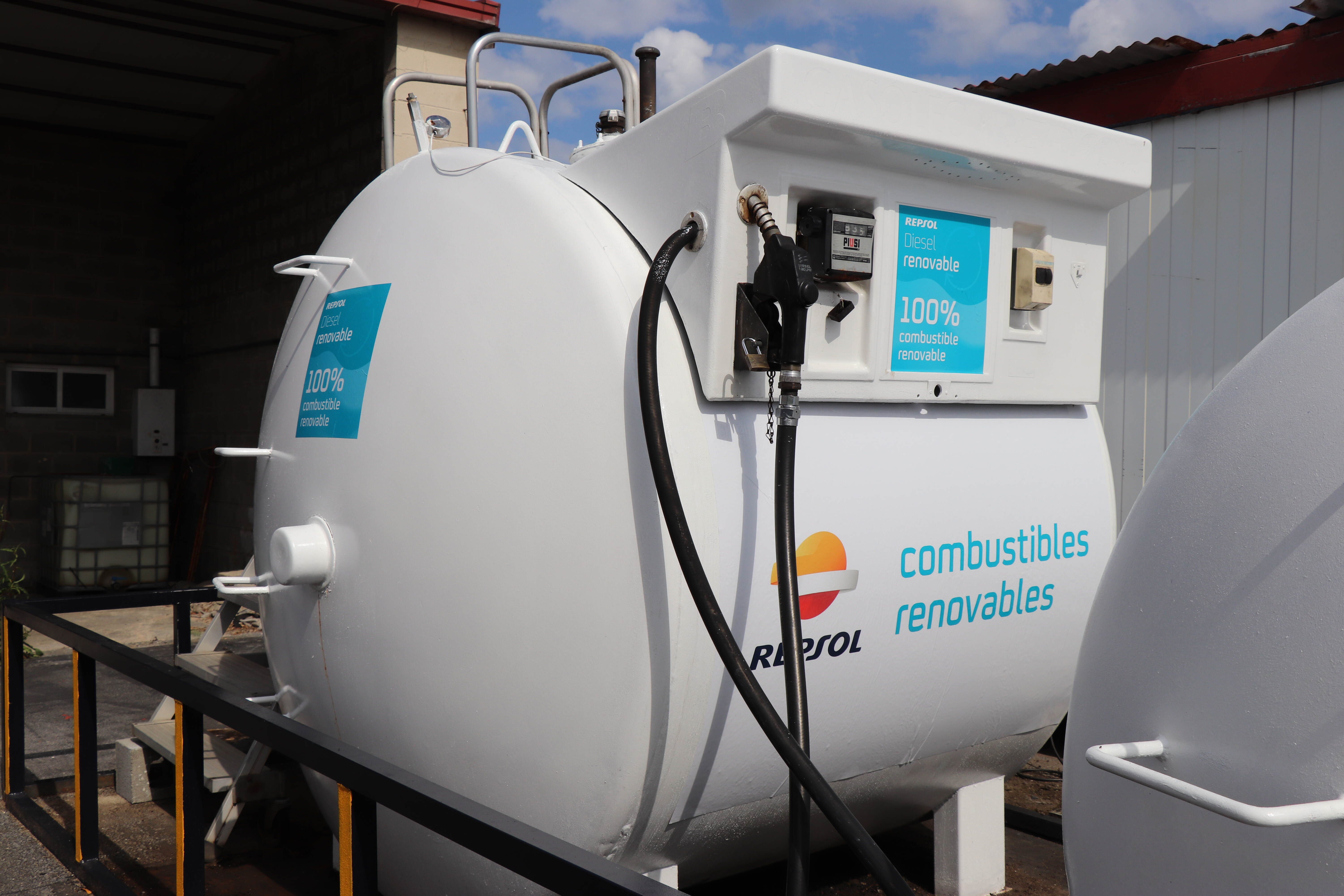Iberia Airport Services and Repsol are carrying out for the first time in Spain, the handling activities at Bilbao airport with 100-percent renewable fuel. Over the next month, both companies will use a sustainable fuel produced from waste at the Petronor plant for all aircraft and customer service operations.
Renewable fuels are produced from renewable raw materials and are zero net emissions. This guarantees an effective contribution to the ecological transition of the airline industry. To be more precise, these advanced biofuels are manufactured from organic waste such as: oils, used vegetables, animal fats and agricultural and forestry residues.
Repsol has been manufacturing and marketing biofuels for more than two decades, and since 2019 it has been producing the organic waste we have been talking about. By 2025, its capacity to produce them will increase to 1.3 million tons and will reach 2 million in 2030. This will position it as a leading company in the production of these biofuels in Spain and Europe.
Therefore, for one month, Iberia Airport Service will supply almost all of its handling equipment with more than 5,000 litres of Repsol fuel. They will refuel their belts, ladders, electrical and pneumatic units, planters, tractors, platforms and pushback trucks, which will mean a reduction of 12.5 tons of CO2 .

Iberia’s Director of Airports José Luis de Luna said, “At Iberia Airport Services we are firmly committed to achieving the goal of net zero emissions in our airport services throughout the network by 2025. To this end we are going to invest more than 100 million euros in some thirty initiatives, including the electrification of more than 80% of our equipment and the use of alternative energies, such as HVO, a fuel that reduces equipment emissions by 100 percent”.
Bilbao Airport director Iván Grande also emphasized that “Aena [the company which operates Spain’s airports] supports this initiative in line with its role as a promoter and facilitator of the sector in the decarbonisation of air transport. At Aena we are working on multiple actions that completely revolutionise our past energy-consumption model. We believe in new fuels as the best tool to fight climate change. The development of new clean energy sources will be crucial for the sustainability of the air sector and mobility in general”.
This initiative is part of the collaboration agreement towards a more sustainable mobility, signed by Iberia and Repsol in 2021. During this period of time, both have collaborated in the AVIATOR Project to analyse the impact of aviation emissions on air quality at airports.
On the other hand, they made the first Madrid-Bilbao flight and the first long-haul flights to Washington DC, Dallas, and San Francisco with sustainable fuel. And in January 2022, Iberia joined the SHYNE (Spanish Hygrogen Network) consortium, led by Repsol to accelerate the development of green hydrogen in Spain.
This strategic agreement between Iberia and Repsol includes a roadmap for the promotion of sustainable aviation fuels (SAF) for the coming years. This product will be produced in the first advanced biofuels plant in Spain, specifically in Cartagena (Murcia), which is expected to start operating in 2023. Also, in 2025, they plan to operate with synthetic SAF (e-fuel) produced at the Petronor plant in Bilbao.

